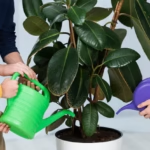Imagine a life where your daily habits contribute positively to the environment, your health, and your community. This is the essence of 3changtrai. Originating from Vietnamese culture, 3changtrai is a philosophy that emphasizes simplicity, sustainability, and self-sufficiency. For sustainable living enthusiasts, eco-conscious consumers, and urban gardeners, understanding and implementing 3changtrai offers a way to align daily practices with broader environmental goals.
In this blog post, we’ll explore the concept of 3changtrai and its myriad benefits for sustainable living and urban gardening. We’ll provide practical tips on how to incorporate 3changtrai into your daily life and share inspiring success stories from those who have already embraced this lifestyle. Finally, we’ll look at the future of 3changtrai and its potential impact on the environment. By the end, you’ll be equipped with the knowledge and motivation to join the 3changtrai movement and make meaningful changes in your life.
The Benefits of 3changtrai for Sustainable Living and Urban Gardening
Adopting 3changtrai can bring numerous benefits to both individuals and communities. One of the most significant advantages is the reduction of waste. By focusing on simplicity and reusability, practitioners of 3changtrai minimize their reliance on disposable items and instead opt for durable, multi-purpose products. This not only decreases the amount of waste generated but also reduces the demand for new resources, promoting a more sustainable cycle.
In addition to waste reduction, 3changtrai encourages a closer connection with nature through urban gardening. Growing your food, even in small urban spaces, can lead to fresher, healthier meals and a deeper appreciation for the natural world. Urban gardening also promotes biodiversity and can help combat urban heat islands, contributing to a healthier, more resilient environment.
Another key benefit of 3changtrai is its focus on self-sufficiency. By learning to grow your food, make your cleaning products, and repair items rather than discarding them, you become less dependent on external systems and more empowered to take control of your life. This not only fosters a sense of pride and accomplishment but also builds resilience against economic and environmental uncertainties.
How to Implement 3changtrai in Your Daily Life Practical Tips and Ideas
Integrating 3changtrai into your daily routine doesn’t have to be overwhelming. Start small by identifying areas where you can make simple changes. For instance, consider switching to reusable shopping bags, water bottles, and food containers. These small steps can significantly reduce your plastic waste and set the stage for more sustainable habits.
Urban gardening is another excellent way to practice 3changtrai. Even if you don’t have a yard, you can grow herbs, vegetables, and even small fruit trees in containers on a balcony or windowsill. Start with easy-to-grow plants like basil, lettuce, and cherry tomatoes, and gradually expand your garden as you gain confidence and experience.
Another practical tip is to make your household products. From cleaning solutions to personal care items, many everyday products can be made at home with simple, natural ingredients. Not only does this reduce your exposure to potentially harmful chemicals, but it also cuts down on packaging waste. There are countless online resources and DIY guides to help you get started.
Success Stories Real-Life Examples of 3changtrai in Action
Hearing about others’ success with 3changtrai can be incredibly inspiring. Take the example of Linh, a young professional living in a bustling city. She started her 3changtrai journey by growing a few herbs on her apartment balcony. Over time, her small garden expanded to include a variety of vegetables, significantly reducing her grocery bills and providing her with fresh, organic produce.
Another success story comes from the Nguyen family, who transformed their suburban backyard into a thriving urban farm. By practicing 3changtrai principles, they’ve managed to produce enough food to sustain their family year-round, with plenty left over to share with neighbors. Their efforts have not only improved their quality of life but have also fostered a sense of community and sustainability within their neighborhood.
Then there’s Minh, a student who took up 3changtrai as a way to cope with the stress of academic life. By simplifying her possessions and focusing on sustainable living, she found a new sense of peace and purpose. Her story highlights how 3changtrai can positively impact mental health and well-being.
The Future of 3changtrai and Its Impact on the Environment
The future of 3changtrai looks promising as more people become aware of the need for sustainable living. With increasing urbanization and the growing impact of climate change, the principles of 3changtrai offer a viable path toward a more sustainable and resilient future. By adopting these practices on a larger scale, communities can reduce their environmental footprint and contribute to global sustainability goals.
Technological advancements and increased access to information will likely play a crucial role in the spread of 3changtrai. Online platforms and social media can help disseminate knowledge and connect like-minded individuals, fostering a global community of sustainability advocates. Additionally, innovations in sustainable technology, such as vertical farming and renewable energy, can further support the implementation of 3changtrai principles.
Furthermore, the increasing emphasis on corporate social responsibility means that businesses are more likely to support and promote sustainable practices. By collaborating with organizations and policymakers, the 3changtrai movement can drive meaningful change at both the individual and systemic levels.
Conclusion
The concept of 3changtrai offers a powerful framework for achieving sustainable living and urban gardening. By simplifying our lifestyles, reducing waste, and fostering a closer connection with nature, we can make a positive impact on our environment and our well-being. The success stories of individuals and families who have embraced 3changtrai demonstrate that these principles are not only practical but also deeply rewarding.
Now is the time to take action and join the 3changtrai movement. Whether you’re just starting on your sustainability journey or looking to take your efforts to the next level, there are countless ways to incorporate 3changtrai into your daily life. By doing so, you’ll be contributing to a more sustainable future for yourself, your community, and the planet.
Ready to get started? Explore our resources and tools to help you on your 3changtrai journey. Together, we can create a world where sustainable living is the norm, not the exception.
FAQs
What is 3changtrai?
3changtrai is a movement focused on sustainable living and self-sufficiency. It encourages individuals to adopt practices that reduce waste, grow their food, and make conscious choices that benefit both personal well-being and the environment.
How can I start with 3changtrai?
Starting with 3changtrai can be as simple as making small changes in your daily life, such as using reusable products, starting a container garden, or making homemade household cleaners. Identify one area you wish to improve, and gradually expand your efforts from there.
Do I need to have a lot of space to practice 3changtrai?
Not at all! 3changtrai can be practiced in various spaces, including small apartments. You can grow herbs and vegetables in pots or containers on balconies, windowsills, or even indoors under grow lights.
What resources are available for learning more about 3changtrai?
There are numerous online resources, tutorials, and community groups dedicated to sustainable living. Websites, blogs, and social media platforms are excellent places to find guides, recipes, and inspiration related to 3changtrai.
Can 3changtrai make a difference in the environment?
Yes! By adopting 3changtrai practices, individuals and communities can significantly reduce waste, lower carbon footprints, and contribute to broader sustainability efforts. Collectively, these actions can lead to meaningful change at both local and global levels.










